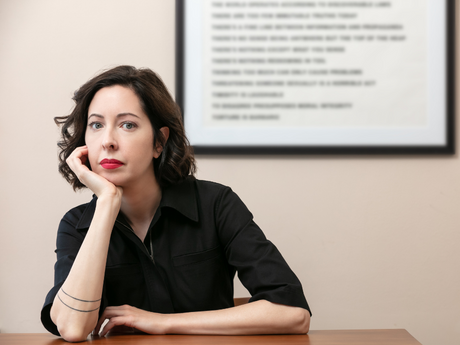Stopping By
Stopping by with Sarah Manguso

Sarah Manguso is a fiction writer, essayist, and poet. She is the author of nine books, most recently the novel Very Cold People, which was longlisted for the Wingate Literary Prize, the PEN/Jean Stein Book Award, and the Mark Twain American Voice in Literature Award. An Editors’ Choice at the New York Times Book Review, it was named a best book of the year by the Guardian, the Los Angeles Times, NPR, and the New Yorker. Her next novel, Liars, is forthcoming in 2024 from Hogarth (US) and Picador (UK). Her other books include a story collection, two poetry collections, and four acclaimed works of nonfiction: 300 Arguments, Ongoingness, The Guardians, and The Two Kinds of Decay, which was shortlisted for the Wellcome Book Prize and longlisted for the Royal Society Winton Prize. She stopped by and answered our questions in July 2023.
What is the last thing you listened to that moved you?
The Gesualdo Six’s recent recording of William Byrd’s Afflicti pro peccatis nostris. I’m a Renaissance sacred music fiend, and G6 are among the very best interpreters thereof. It’s always a good idea to listen to 500-year-old music when you feel trapped in the present.
What is a book that changed or greatly influenced your life? Why/how?
Syd Hoff’s book The Horse in Harry’s Room. The horse is an ineffable thing explained simply, with blazing compassion. It is impossible to read this book aloud without weeping.
What is your first memory of poetry?
Silverstein’s Where the Sidewalk Ends.
Who or what is your greatest creative influence?
My body. If I pay attention to it, I always know what to write.
If you were to choose one poem or text to inscribe in a public place right now, what would that be? And where would you place it?
If you’d asked me this question twenty-five years ago, I’d have had an answer—maybe even a good answer. I turn fifty next year. It’s not my time to attempt public mass appeal. Young people have begun to speak to me in an English carefully scrubbed of their own vernacular.
What do you see as the role of art in public life at this moment in time?
The same as ever—to comfort the afflicted and afflict the comfortable.
What do you want people to take away from your work?
Some remnant or approximation of the feelings I translate into the words I know.
Are you working on anything right now that you can tell us about?
A novel about sexual obsession narrated by a fifty-year-old woman.
What are you hopeful for?
A general correction of the world’s present tilt toward authoritarianism.


